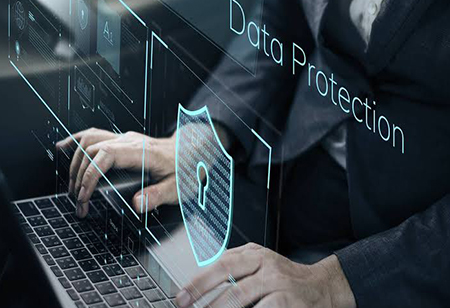By Tanuja Akkannavar
 From the time Covid-19 pandemic has spread all over the countries, the companies have asked their employees to work from home. And the concept Work From Home has turned out as a norm that all the companies are following in order to be safe and also to function their organizational duties.
From the time Covid-19 pandemic has spread all over the countries, the companies have asked their employees to work from home. And the concept Work From Home has turned out as a norm that all the companies are following in order to be safe and also to function their organizational duties.
Every company has a department or hired professionals who look after the cyber safety of their company and make sure that the company’s data is safe also, the flow of data among the employees. But, at present all the employees are working from home using their personal devices without any security for their data that is been circulated among the employees using a common communicational platform. Hence, the threats towards cybersecurity are increasing as there is no strong technology used by the employees to safeguard their company data while working from home. Following are some of the ways how to secure a company’s data while working from home:
1. Install Antivirus –
As the employees are using their laptops, computers and other devices that are required to complete their tasks. As these devices are connected to the internet, in such cases an employee should install antivirus software in their systems which can help them to safeguard their data stored. By installing the right antivirus software the employees can work safely without any threats to their official operations.
2. Network Security –
Most of the times cyber threats are taken place by hacking the systems through Wi-Fi’s or networks that the companies or employees use by connecting their devices to the broadband network. While employees are working from home connecting to their personal broadband and many people may be aware of the details about their network which may act as a disadvantage for an employee when it comes to safeguarding their work data. Hence, the employees secure their network using certain softwares or anything available.
3. Do Not Share Passwords –
The main element that has to be kept in mind while the employees work from home is not to share the official platform details or password with anyone who is not associated with their company. For example – If an employee is unable to login to their official platform due to any issues regarding their system or network, sometimes they try to login using others device or network. In such an instance, the safety of the data is under major threat. So the employees have to avoid such circumstances, even if they use other devices the employees should make sure that they delete all the official login details after completing their work.
4. Keep Updating the IT Officials –
If an employee faces any irregularity while using any official website, software or while sending that information to the other employees. He/she should inform the IT department of their company and also the employees handling important data should keep updating their IT department about their usage and assessment.
5. Use Recommended Softwares –
Employees should only use those softwares or social platforms that are recommended by their company’s management or IT officials. Because to protect their data every company will be having customized softwares which will completely under the IT officials of their company. Hence, it is better to follow the suggestions provided by a company and if any employee wants to use any other better softwares they should keep their officials informed.
The data is a most precious asset to any company and in general, the cyber threats are increasing with all the safety measures taken. In this pandemic situation, the companies are functioning with their employees working from home in such situations a company has to safeguard their data as the level of cyber risk increases when the employees work without any safety measures. So, the companies have to make their employees aware of these cyber threats and tell them to secure their devices and networks.
We use cookies to ensure you get the best experience on our website. Read more...